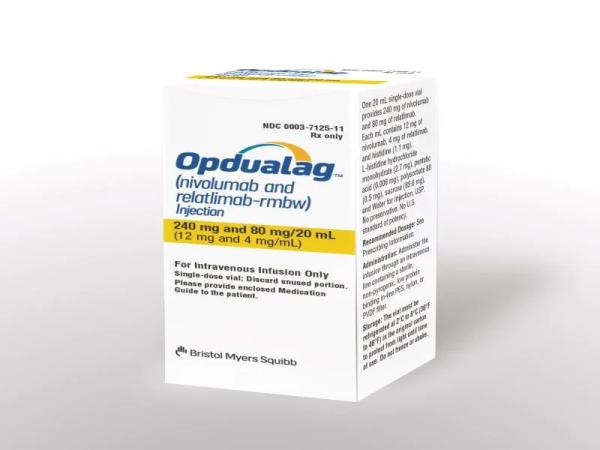Opdualag Interactions
There are 605 drugs known to interact with Opdualag (nivolumab/relatlimab), along with 5 disease interactions. Of the total drug interactions, 3 are major, and 602 are moderate.
- View all 605 medications that may interact with Opdualag
- View Opdualag disease interactions (5)
Most frequently checked interactions
View interaction reports for Opdualag (nivolumab / relatlimab) and the medicines listed below.
- acetaminophen
- Afrin Original (oxymetazoline nasal)
- Aleve (naproxen)
- amoxicillin
- aspirin
- Augmentin (amoxicillin / clavulanate)
- Benadryl (diphenhydramine)
- benzoyl peroxide topical
- Betadine Aerosol Spray (povidone iodine topical)
- Breo Ellipta (fluticasone / vilanterol)
- budesonide
- cefdinir
- Celexa (citalopram)
- Centrum (multivitamin with minerals)
- ciprofloxacin
- Clindagel (clindamycin topical)
- dexamethasone
- Eliquis (apixaban)
- gabapentin
- levothyroxine
- Lipitor (atorvastatin)
- loratadine
- Metamucil (psyllium)
- pantoprazole
- Paxlovid (nirmatrelvir / ritonavir)
- prednisone
- rosuvastatin
- Synthroid (levothyroxine)
- Vitamin D3 (cholecalciferol)
- Zyrtec (cetirizine)
Opdualag disease interactions
There are 5 disease interactions with Opdualag (nivolumab / relatlimab) which include:
More about Opdualag (nivolumab / relatlimab)
- Opdualag consumer information
- Compare alternatives
- Pricing & coupons
- Drug images
- Side effects
- Dosage information
- During pregnancy
- FDA approval history
- Drug class: antineoplastic combinations
- En español
Related treatment guides
Drug Interaction Classification
| Highly clinically significant. Avoid combinations; the risk of the interaction outweighs the benefit. | |
| Moderately clinically significant. Usually avoid combinations; use it only under special circumstances. | |
| Minimally clinically significant. Minimize risk; assess risk and consider an alternative drug, take steps to circumvent the interaction risk and/or institute a monitoring plan. | |
| No interaction information available. |
See also:
Further information
Always consult your healthcare provider to ensure the information displayed on this page applies to your personal circumstances.


